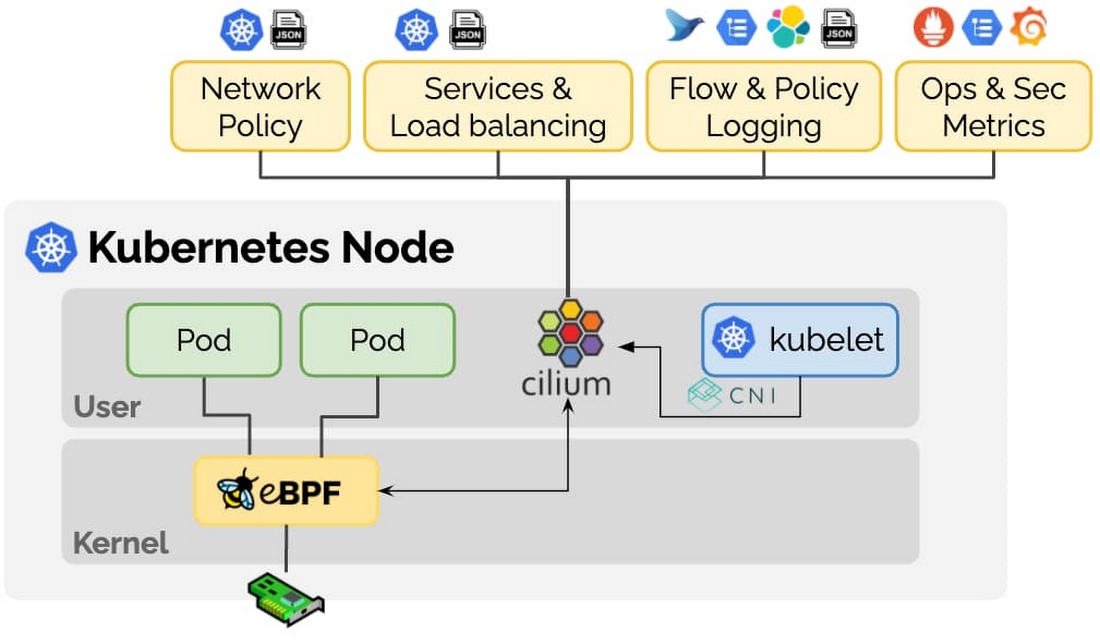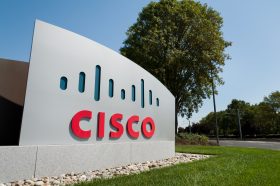Isovalent Grabs $29M for eBPF
A startup named Isovalent has emerged from stealth with two intriguing bits of news: First, it has garnered $29 million in Series A funding led by Andreessen Horowitz and Google with participation from Cisco Investments, Mango Capital, and SV Angel. And second, it aims to bring a key open-source technology for cloud-native networking into the enterprise mainstream.
What Isovalent is doing is tough to grasp because it's down in the depths of deep Linux-based engineering. But here’s the basic rundown: Isovalent’s mission is to commercialize Cilium, an open-source project based on a technology called extended Berkeley Packet Filter (eBPF). Originated circa 2014, eBPF streamlines the speed and efficiency of programs that use Kubernetes-based microservices. It does this by running not atop the Linux kernel but directly inside it.
How Cilium Uses eBPF
In a blog post for Google, which has adopted Cilium in its Google Kubernetes Engine (GKE) for Google Cloud Platform, Gobind Johar, GKE product manager, and Varun Marupadi, GKE software engineer, described the relationship between eBPF and Cilium as follows:
eBPF is a revolutionary technology that can run sandboxed programs in the Linux kernel without recompiling the kernel or loading kernel modules.… Cilium is an open source project that has been designed on top of eBPF to address the new scalability, security and visibility requirements of container workloads. Cilium goes beyond a traditional Container Networking Interface (CNI) to provide service resolution, policy enforcement and much more as seen in the picture below.

Source: Google Cloud Blog
“Cilium is cloud-native networking without the compromise: platforms teams get a developer-friendly, scalable and multi-cloud platform while giving SecOps teams the efficient and powerful security visibility and controls they need,” said Dan Wendlandt, co-founder and CEO of Isovalent, in a prepared statement.
Future Prospects for Isovalent
As arcane as the details of Cilium and eBPF may be to the uninitiated, the technology enjoys a solid popularity among cloud programmers. Besides Google, Cilium’s been adopted by Capital One, Adobe, Datadog, Alibaba Cloud, GitLab, Palantir, and Wildlife Studios. Its efficiencies for cloud-native programming are well known, and they fit the emerging paradigm of microservices- and containerized cloud software.
Isovalent’s team couldn’t be better suited to spread Cilium’s fame. Co-founder and CTO Thomas Graf (ex-Red Hat, Cisco) founded the Cilium project. And CEO Wendlandt (ex-Nicira, VMware) was a project tech lead for the OpenStack networking project.
Clearly, Isovalent’s team will be preaching to the converted when it comes to addressing developers in the market for enterprise cloud. They will face challenges, though. Some enterprises may not be at the point of developing cloud-native applications, but instead could be dealing mainly with virtualized environments. Also, the true purveyors of Cilium’s message will be developers in the trenches. In enterprises not organized to empower those developers to deliver that message to management, adoption may be delayed.
Still, the momentum behind Isovalent can’t be denied. Cloud-native development tools will be increasingly required as enterprises and their cloud providers move to multi-cloud networking and focus on the secure edge, particularly as 5G services unfold. Given Isovalent’s impressive backing and solid technical expertise, interesting results could follow.

















